Plant identity - Gibson Desert
Submitted: Sunday, Nov 01, 2015 at 12:35
ThreadID:
130756
Views:
3967
Replies:
5
FollowUps:
6
This Thread has been Archived
equinox
Hi there,
Can anyone identify this plant found in the
Gibson Desert?
A mate has asked me after seeing some of my pictures.
I only took the pictures as I had never seen the plant before, it could possibly be some sort of parasite.
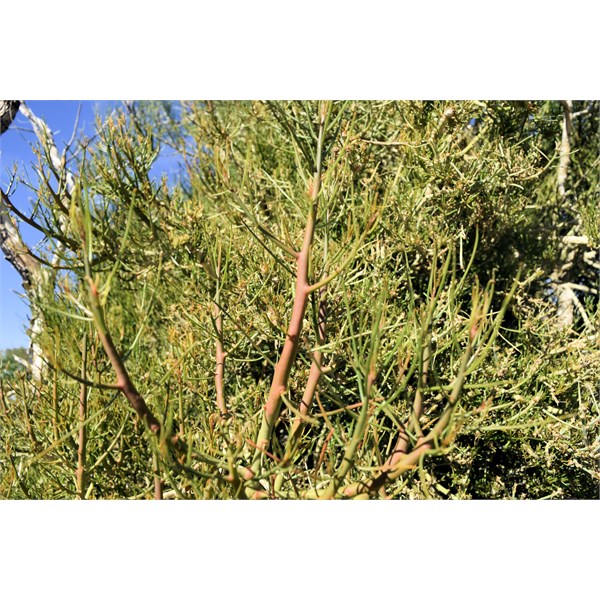
Plant in question
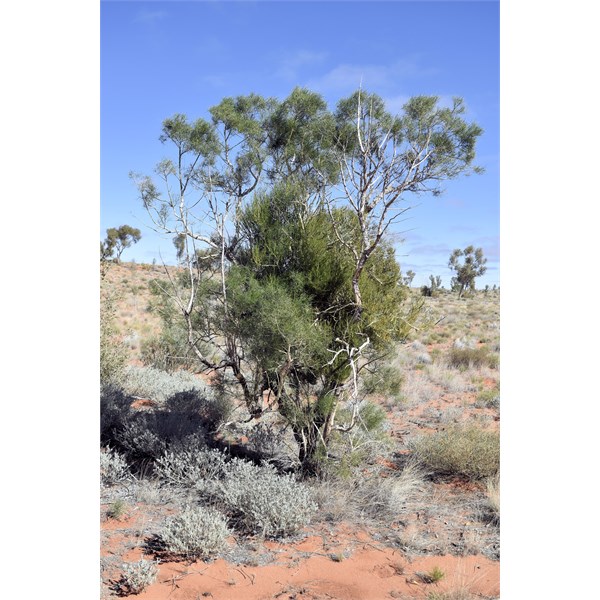
Plant growing in/around tree
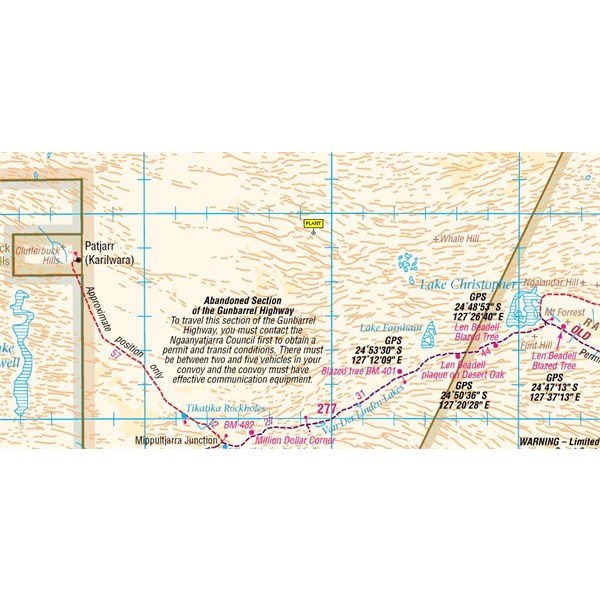
Plant location
Cheers if anyone can help.
Alan
Reply By: Mick O - Sunday, Nov 01, 2015 at 12:42
Sunday, Nov 01, 2015 at 12:42
Al, the plant underneath it all looks like a dog wood or corkwood. As to the plant growing around it, I've no idea. I haven't seen anything like it before myself.
Cheers Mick
AnswerID:
592218
Follow Up By: Rick (S.A.) - Sunday, Nov 01, 2015 at 16:37
Sunday, Nov 01, 2015 at 16:37
Mick,
agreed that it's hard to identify. To me the underneath plant looks like camel poison bush, Gyrostemon ramulosus, because of its pale wispy branches.
Cheers to you & Al
RM
FollowupID:
860345
Follow Up By: Mick O - Sunday, Nov 01, 2015 at 16:57
Sunday, Nov 01, 2015 at 16:57
That exact thought crossed my mind as
well Rick but it just didn't seem thick enough. Would have liked a better photo of the leaves/fronds.
Cheers Mick
FollowupID:
860347
Reply By: Steve in Kakadu - Sunday, Nov 01, 2015 at 12:47
Sunday, Nov 01, 2015 at 12:47
My guess is
Mistletoe, I could be wrong.
AnswerID:
592219
Reply By: Rick (S.A.) - Sunday, Nov 01, 2015 at 16:39
Sunday, Nov 01, 2015 at 16:39
Alan,
Is it regrowth or another species tangled up or possibly parasitic, like a mistletoe, in the other plant?
RM
AnswerID:
592227
Follow Up By: equinox - Sunday, Nov 01, 2015 at 17:19
Sunday, Nov 01, 2015 at 17:19
Gday Rick,
I think there is regrowth from the main tree as
well as this other plant.
I've only the two pictures, this one is zoomed up from Paint
Shop.
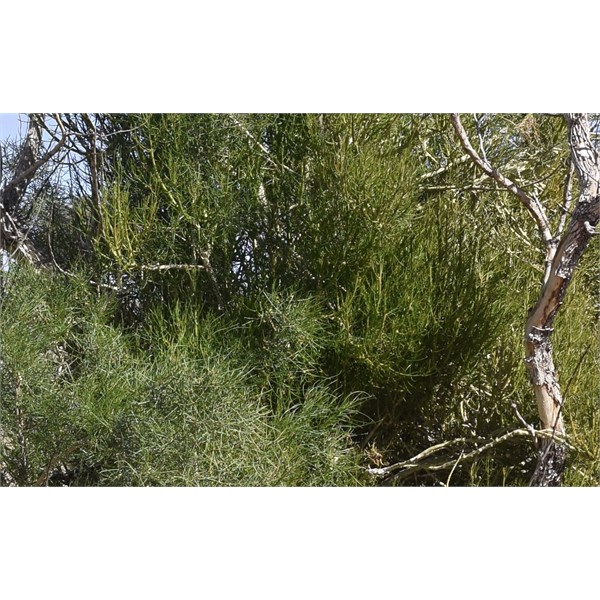
Zoomed up
FollowupID:
860348
Reply By: Member - Stephen L (Clare SA) - Sunday, Nov 01, 2015 at 21:01
Sunday, Nov 01, 2015 at 21:01
Hi Alan
It is hard to see without seeing more images but I am going against what others have said and would put my money (mind you I do not have much to lose) on it being Gyrostemon ramulosue or as it is comply known as Camel Poison Bush and can grow up to 4m in height.
In the immature stages of growth it looks like the image you have shown with the mature branches above. The tree is also found throughout the
Great Victoria Desert and into the
Gibson Desert.
Below are images of regrowth from a remote area of the
Great Victoria Desert that had been burnt out with very hot fires in the summer of 2012 - 2013 and this regrowth is how
the desert can respond within 18 months.
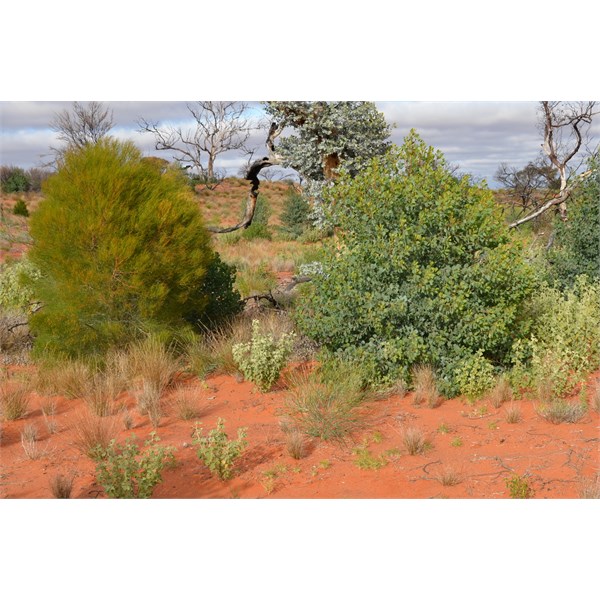
Poison Camel Bush on the left
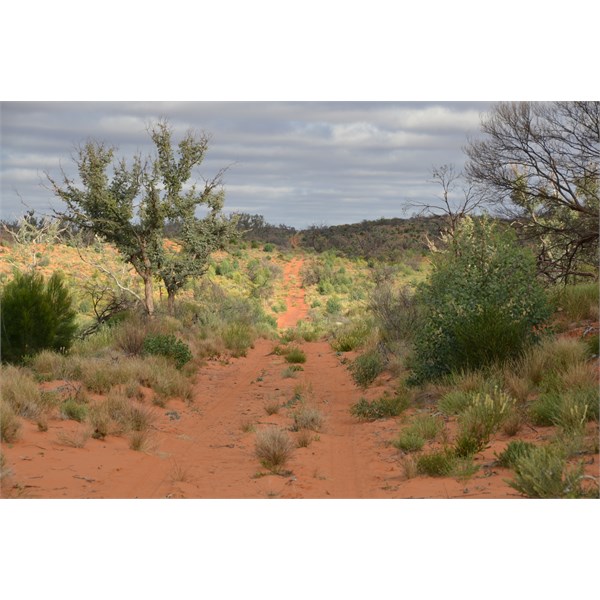
Regrowth of both special in remote area of the Great Victoria Desert
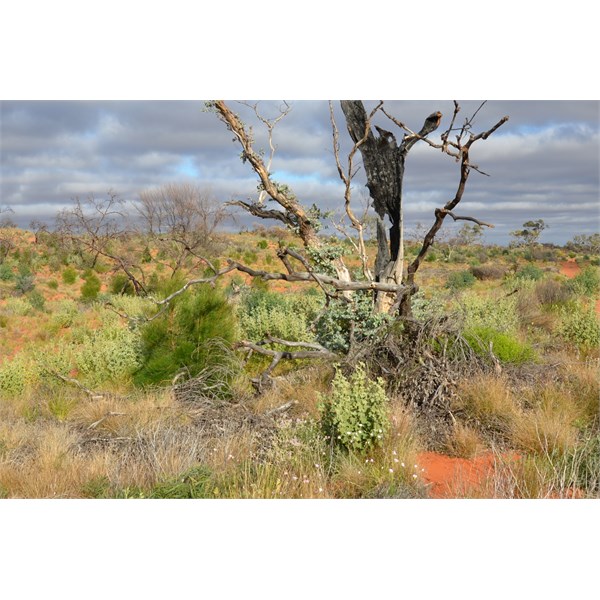
Another example of regrowth, along side a burnt Marble Gum
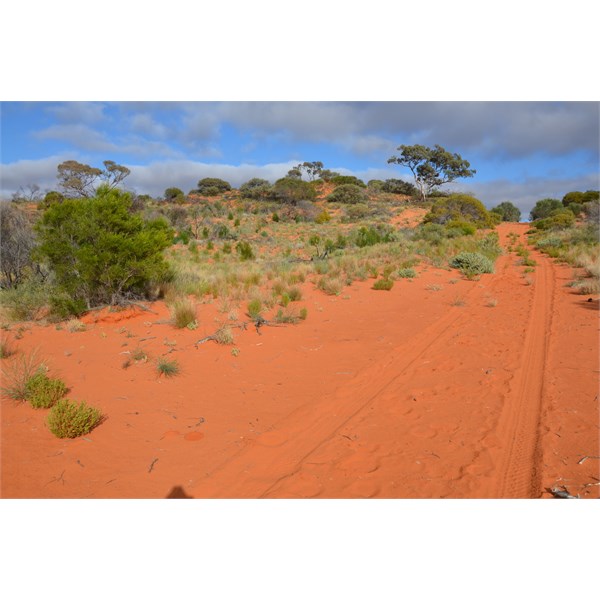
There were dozens of new ones growing on the side of this dune
Here are some more images from the Flora Base of WA at the link below:
Flora Base
Cheers
Stephen
AnswerID:
592243
Follow Up By: Member - John and Val - Monday, Nov 02, 2015 at 12:13
Monday, Nov 02, 2015 at 12:13
I agree with Stephen re poison camel bush. Its certainly not a mistletoe. The thick growth that you can see is just regrowth from the original plant as far as I can see.
BTW the zoom feature that David has incorporated into the photos is pretty neat.
Cheers,
Val.
| J and V
"Not everything that can be counted counts, and not everything that counts can be counted."
- Albert Einstein
Lifetime Member
My Profile My Blog Send Message |
FollowupID:
860381
Follow Up By: Member - John and Val - Monday, Nov 02, 2015 at 12:26
Monday, Nov 02, 2015 at 12:26
Zooming in to Alan's first photo I can just make out some flowers that look like PCB flowers, and also some smaller leaves. But the second photo seems to show only trunks of PCB trees/shrubs. So, ruling out mistletoe (because afaik there are no mistletoes with leaves like that), I think those small leaves are a witches broom that has formed on the PCB plant. Witches brooms are not uncommon and are caused by some infection or damage to the plant, interrupting the growing points and instead making the infected plant produce a dense bunch of small, often weak growth, hence the name. They can often look like a mistletoe.
Cheers,
Val.
| J and V
"Not everything that can be counted counts, and not everything that counts can be counted."
- Albert Einstein
Lifetime Member
My Profile My Blog Send Message |
FollowupID:
860382
Follow Up By: equinox - Monday, Nov 02, 2015 at 20:05
Monday, Nov 02, 2015 at 20:05
Thanks everyone for the replies, I will let my friend know.
Lucky I wasn't riding a camel at the time.
Cheers
Alan
FollowupID:
860402
Reply By: Member - Stanley D - Wednesday, Nov 04, 2015 at 23:12